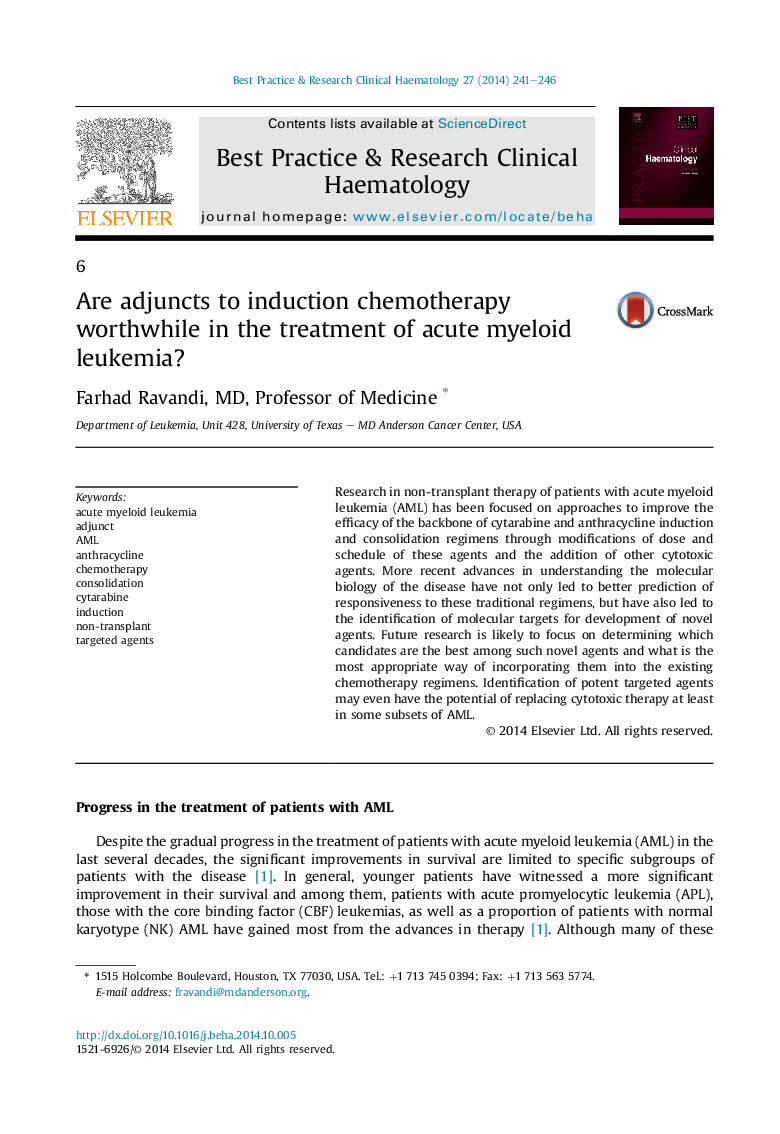| Article ID | Journal | Published Year | Pages | File Type |
|---|---|---|---|---|
| 2100143 | Best Practice & Research Clinical Haematology | 2014 | 6 Pages |
Research in non-transplant therapy of patients with acute myeloid leukemia (AML) has been focused on approaches to improve the efficacy of the backbone of cytarabine and anthracycline induction and consolidation regimens through modifications of dose and schedule of these agents and the addition of other cytotoxic agents. More recent advances in understanding the molecular biology of the disease have not only led to better prediction of responsiveness to these traditional regimens, but have also led to the identification of molecular targets for development of novel agents. Future research is likely to focus on determining which candidates are the best among such novel agents and what is the most appropriate way of incorporating them into the existing chemotherapy regimens. Identification of potent targeted agents may even have the potential of replacing cytotoxic therapy at least in some subsets of AML.
